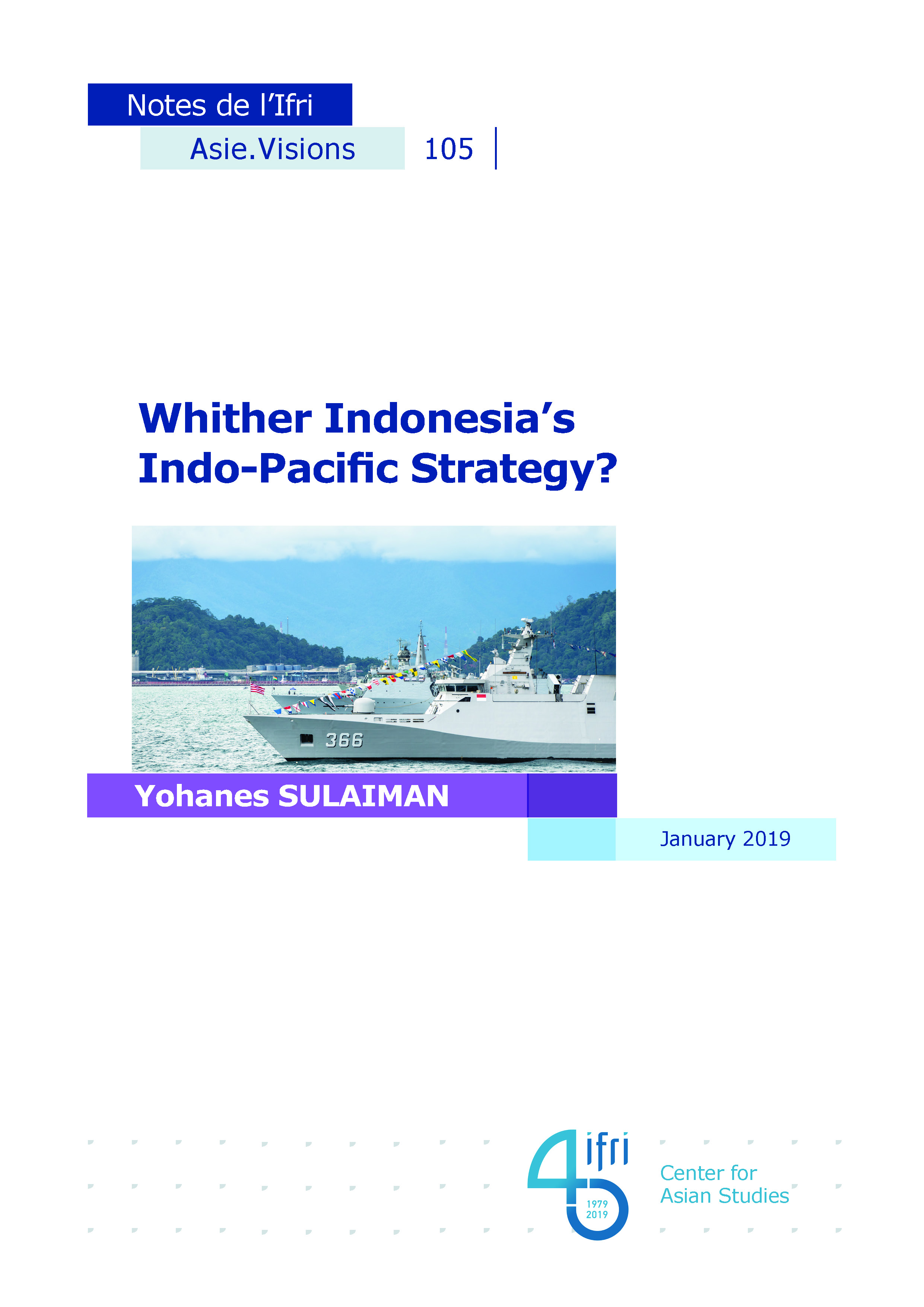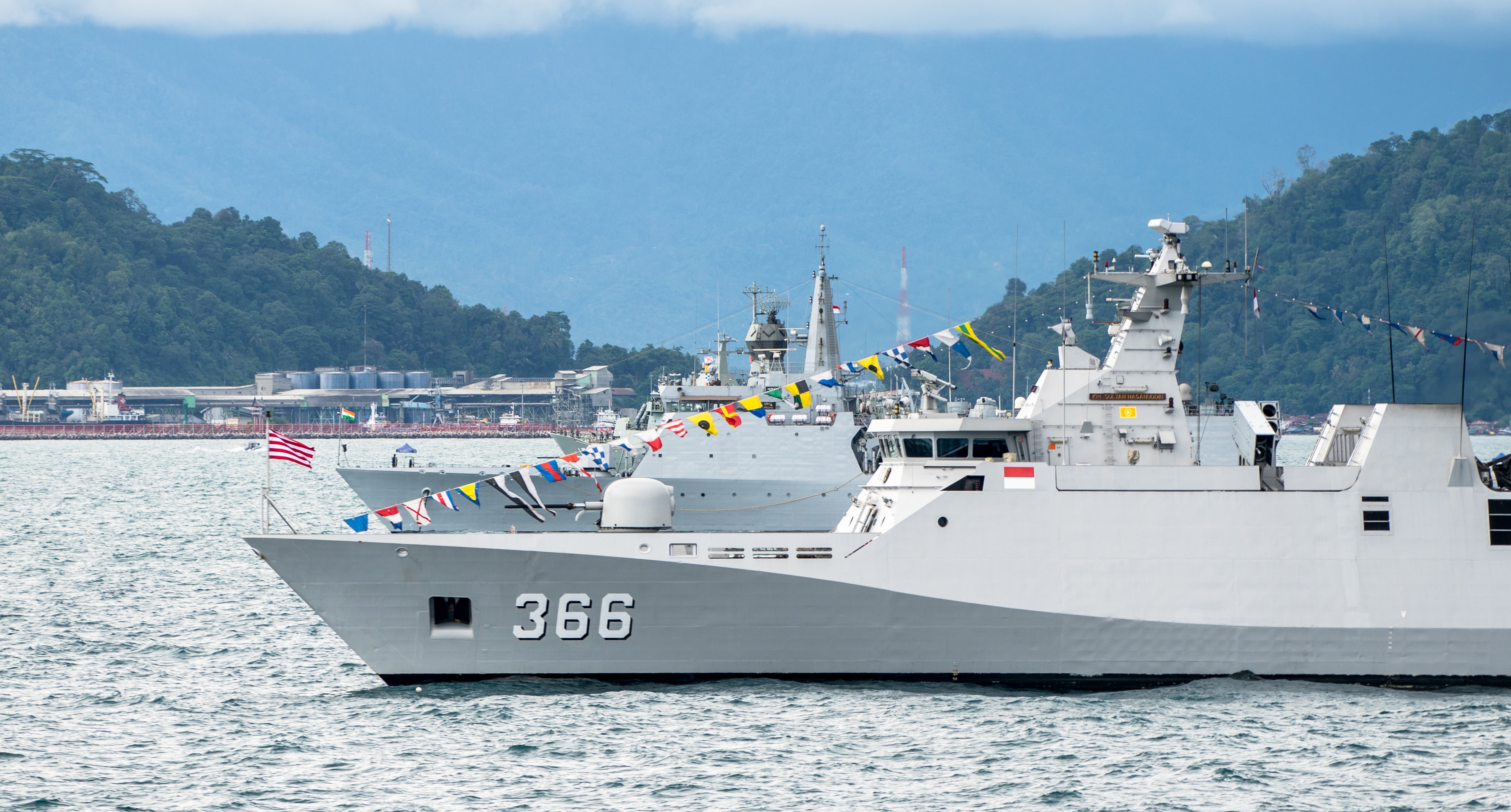Whither Indonesia's Indo-Pacific Strategy?

Indonesia’s Indo-Pacific strategy is driven less by a coherent national strategy than by a choice made due to the lack of alternatives resulting from Indonesia’s domestic and international weaknesses.

This results in Indonesia seeing itself as the key balancer in the region.
Indonesia’s sole goal is, in essence, to avoid being dragged into conflict that would threaten its bargaining power, while at the same time, maintaining the status quo in the region to preserve its bargaining power. Therefore, Indonesia takes a multilateral institutional approach that it hopes will lower tensions in the region and maintain the status quo both in the region and domestically.
This paper analyzes Indonesia’s overall Indo-Pacific strategy from the Yudhoyono to the Jokowi Administration by examining various domestic considerations and their implications. In terms of policy implications, the major take-aways are as follows:
- Indonesia’s Indo-Pacific policy lacks anything concrete beyond more economic and social-cultural cooperation.
- In the case of growing tension in the Indo-Pacific region, there is simply no possibility that Indonesia will join any military pact or work with others to contain China or other countries militarily.
- For Indonesia, the solution for any tension is more cooperation and more diplomacy to achieve a consensus that would put Indonesia as a key player in the Indo-Pacific region.
Download the full analysis
This page contains only a summary of our work. If you would like to have access to all the information from our research on the subject, you can download the full version in PDF format.
Whither Indonesia's Indo-Pacific Strategy?
Related centers and programs
Discover our other research centers and programsFind out more
Discover all our analysesJapan’s Takaichi Landslide: A New Face of Power
Prime Minister Sanae Takaichi has turned her exceptional popularity into a historic political victory. The snap elections of February 8 delivered an overwhelming majority for the Liberal Democratic Party (LDP), driven by strong support from young voters, drawn to her iconoclastic and dynamic image, and from conservative voters reassured by her vision of national assertiveness. This popularity lays the foundation for an ambitious strategy on both the domestic and international fronts.
The U.S. Policy Toward Taiwan Beyond Donald Trump: Mapping the American Stakeholders of U.S.-Taiwan Relations
Donald Trump’s return to the White House reintroduced acute uncertainty into the security commitment of the United States (U.S.) to Taiwan. Unlike President Joe Biden, who repeatedly stated the determination to defend Taiwan, President Trump refrains from commenting on the hypothetical U.S. response in the context of a cross-Strait crisis.

China’s Strategy Toward Pacific Island countries: Countering Taiwan and Western Influence
Over the past decade, China has deployed a diplomatic strategy toward the Pacific Island Countries (PICs). This strategy pursues two main objectives: countering Taiwan's diplomatic influence in the region and countering the influence of liberal democracies in what Beijing refers to as the "Global South."

Opening up the G7 to South Korea to Address Contemporary Global Challenges
The G7’s global influence has diminished as powers like China reshape international governance through initiatives such as BRICS and the Shanghai Cooperation Organisation (SCO). With the G7 now representing just 10 per cent of the world’s population and 28 per cent of global GDP, its relevance is increasingly questioned.









